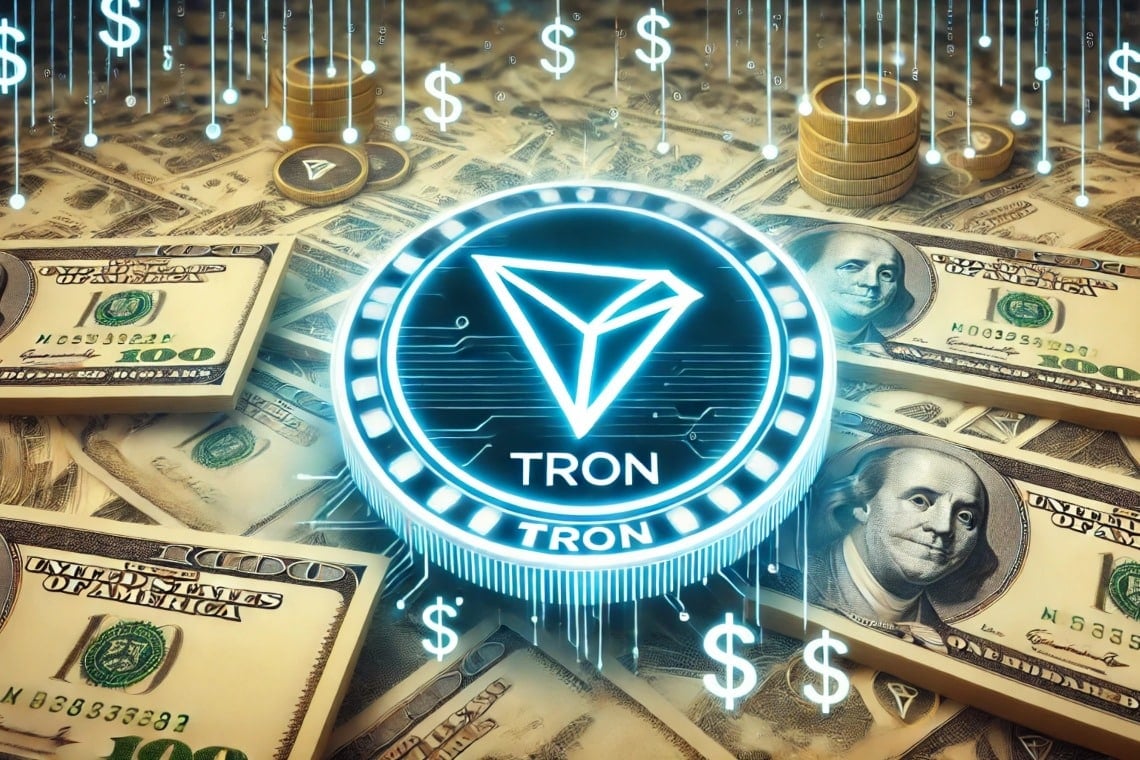So far, the blockchain of Tron has demonstrated not only to excel in the stablecoin sector, but also to radically transform the way companies operate globally.
The supremacy of the Tron blockchain in the stablecoin market
In the world of cryptocurrencies, the competition for supremacy is fierce, with various blockchains striving to carve out a dominant role.
According to Orbital data, Tron holds an extraordinary share of 97.62% of stablecoin transactions, far surpassing other major blockchains like Ethereum (2.12%), Solana (0.21%), Binance Smart Chain (0.05%), and Polygon (0.01%).
This predominance is indicative of the confidence and reliability that Tron has been able to build over time. But what makes Tron so special in the stablecoin market?
One of the main reasons for the success of Tron is its technological architecture. Tron offers fast and cheap transactions, a crucial aspect for stablecoins, which are often used for frequent and low-value transfers. The efficiency and scalability of the Tron network allow stablecoins to operate optimally, ensuring rapid confirmation times and low fees.
Tron has created a robust ecosystem that supports various projects and decentralized applications (dApp). This vibrant ecosystem attracts users and developers, creating a virtuous cycle of growth and innovation. The Tron Foundation, led by Justin Sun, has heavily invested in the development of the infrastructure and the promotion of the network, contributing to consolidating Tron’s position as a leader in the stablecoin market.
Tron and the transformation of business operations
In addition to dominating the stablecoin market, Tron is having a significant impact on global business operations. This influence is manifested in several key ways.
One of the most relevant applications of Tron is in cross-border payments. Traditional international transactions can be slow and expensive, with high fees and long waiting times. Stablecoins on Tron offer an effective alternative, allowing for almost instant transfers at very low costs. Companies around the world are adopting this technology to improve efficiency and reduce operational costs.
Tron is also revolutionizing supply chain management. By using smart contracts, companies can track the movements of goods along the entire supply chain in a transparent and secure manner. This improves transparency, reduces fraud, and increases operational efficiency. Businesses can monitor the status of products in real-time, ensuring that the information is accurate and up-to-date.
Decentralized finance is another sector where Tron is making its mark. The DeFi platforms on Tron offer a range of financial services, such as loans, staking, and yield farming, without the need for traditional intermediaries. This democratizes access to financial services, allowing a wider audience to participate and benefit from the opportunities offered by the blockchain.
The ability to tokenize real assets is another strength of Tron. Companies from various sectors are exploring the possibility of creating tokens that represent real estate, artworks, securities, and other assets. This tokenization facilitates the fractionalization of assets, making them more accessible to investors and improving market liquidity.
Conclusions
Tron is not only the undisputed leader in the stablecoin market, but it is also a driving force in the transformation of global business operations. Its advanced technology, dynamic ecosystem, and innovative applications are redefining the way companies manage transactions, supply chain, finance, and asset tokenization.
With a market share of 97.62% in stablecoin transactions, Tron has proven to be a reliable and efficient platform. As the world continues to evolve towards an increasingly digitized economy, Tron is well-positioned to play a key role in the future of global business operations.
This article was originally published by a en.cryptonomist.ch . Read the Original article here. .

